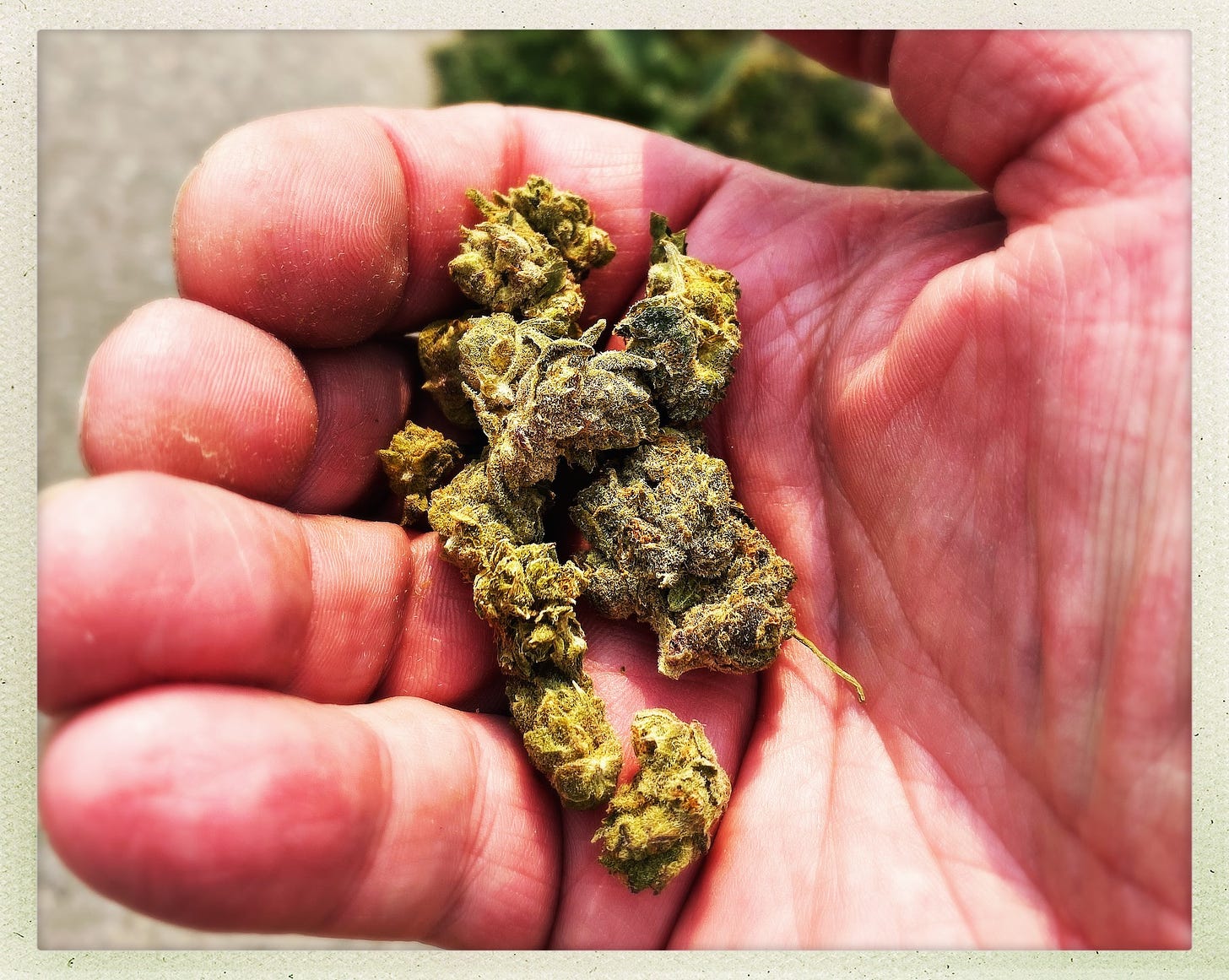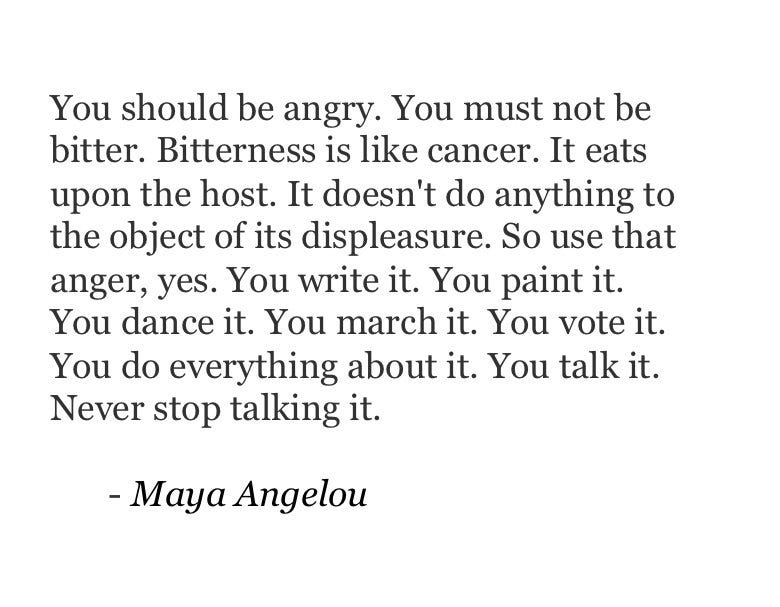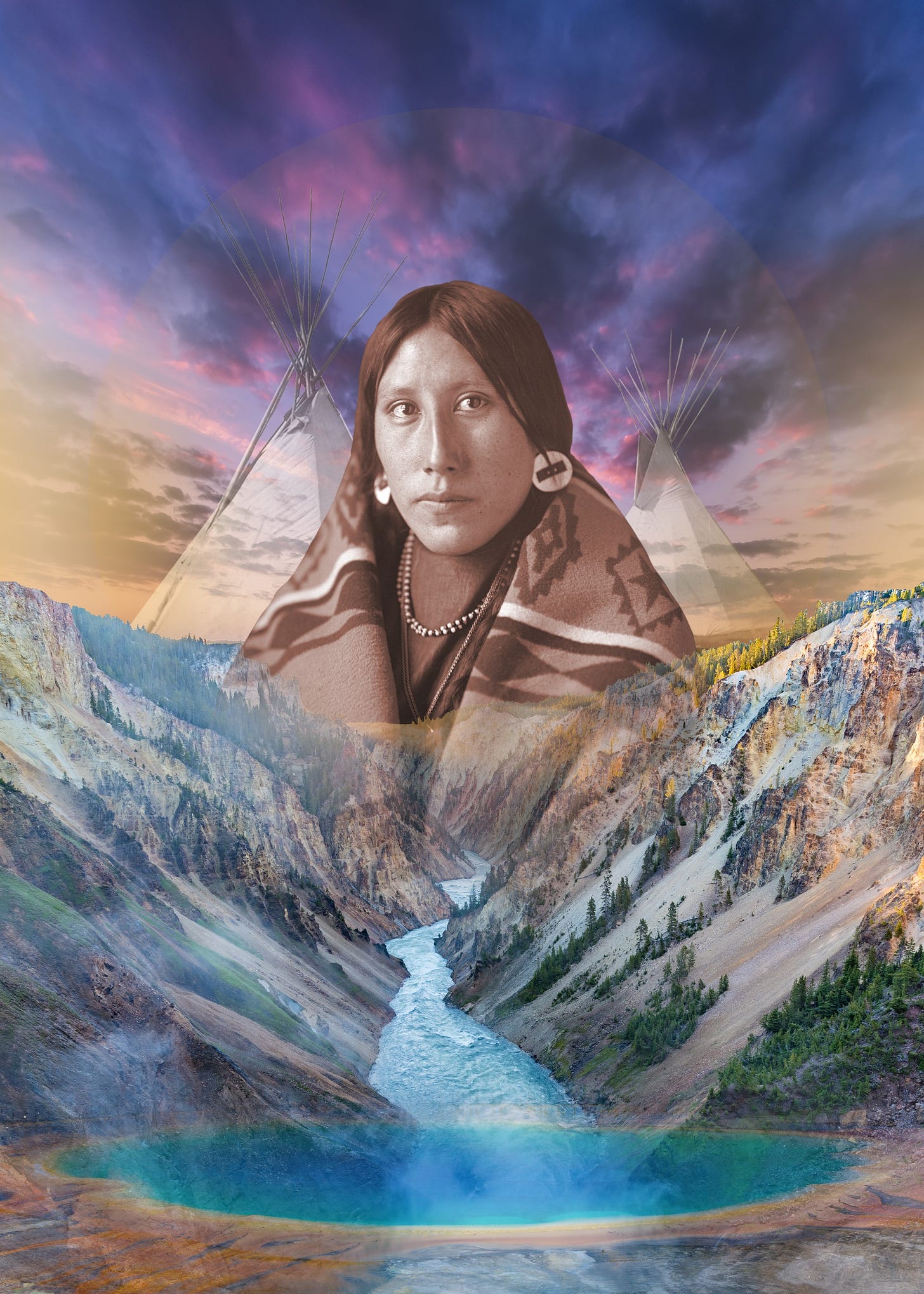Boozhoo! Aaniin! Welcome to another edition of An Irritable Métis. The weather is turning to fall and our largely smoke-free summer experience has ended: the smoke here in the Missoula valley is gross and I don’t even know where the fires are. Everywhere? We are under an air quality alert as I write, with the air we are wheezing into our lungs rated as “Unhealthy.” When did this become normal? I commented somewhere on Twitter earlier this week that I've been thinking about this a lot, particularly after a drive out to Washington and back under largely apocalyptic-looking skies. Then I arrive home and think things like, "Yeah, it's smoky, but not that bad...." when I CAN'T EVEN SEE THE MOUNTAINS AT THE EAST END OF THE VALLEY! It was never like this even what ... a decade ago? Are we going to just keep accepting this kind of slow descent into chaos and suffering or actually do something about it? Is it too late? I fear both answers, frankly.
Anyway, thanks for reading. Speaking of Twitter, I continue to struggle with whether or not social media is something I want to participate in. I have a hate/slightly-less-hate relationship with it but, sadly, to communicate with some people it is the only option, and I have not yet reached the point where my living exceeds my need to be part of the world. Honestly, I thought most of these platforms would be dead by now, especially Facebook, given how awful they prove themselves to be time and time again. Another thing we generally just don’t care about because nothing there has really changed, has it?
This newsletter remains my favorite connection to people – all of you people! – and I don’t see that changing until Substack inevitably collapses into a smoking heap of failed get rich techie ambitions. Nonetheless, if you’re into that mind of thing, you may follow me on Twitter HERE. I’ve also revived an Instagram account that I’ve barely posted to; I use it mostly to look at other things people are doing in an effort to be happier. You can follow me there HERE. I can’t say I won’t delete both in the near future. Again.
And as always, there’s always this. Last week’s subscriber-only post was pretty popular. You might not want to miss future installments. Keep in mind those of you with limited incomes can request access, no questions asked. I’m happy to report a few of you have taken me up on that and received lifetime paid subscriptions. It’s not a big deal whether you pay or not, but I sure do appreciate those of you who can and do.

Last Wednesday I was making my way toward the footbridge crossing the Clark Fork River that allows access to the campus of the University of Montana from East Broadway. A man was sprawled at the northern edge of the bridge. It’s not an uncommon sight here, houseless people sleeping or sitting in this particular area, but this guy didn’t look like he was sleeping. He appeared more collapsed than resting. He had pants on and was shoeless and shirtless and covered in tattoos. Though early in the afternoon it was already plenty hot out and he was in direct sunlight. As I approached I noted a folded cardboard sign with “Anything Helps” scrawled on it in black marker. When I was a step or two away he sat up abruptly, bracing himself on one arm.
“Is everything okay, brother?” I asked him. “Are you alright?” He said he was, but his eyes, while clear, looked startled and fearful. “Do you have something to drink? Do you have anything to eat?” I asked. He said he didn’t. I had a ten dollar bill in my wallet and I gave it to him. “Take this,” I said. “Get out of the damn heat.” He thanked me profusely, but though he was sitting upright now I don’t know if he got up and left as I headed away across the bridge or not.
At the opposite end was another man. I’ve known this guy for years but his name escapes me. He is older, with wild hair and a big beard. “Buy me a cup of coffee?” he asked as I neared. I don’t know if he recognizes me or not, or remembers, but this is how we’ve interacted for years when I would encounter him outside of Liquid Planet, when it was on Higgins, and I would pass him on my way to get coffee1. I usually did bring him a cup and, and as I still had three dollars, I gave them to him this time too.
When I handed him the bills he thanked me and said, “Hey, you want a joint?” I’m not a weed smoker but who knows when a joint might come in handy so, in the time-honored spirit of exchanging gifts, I said sure. Only I didn’t get a joint. He opened a bag on his lap that was stuffed full of what looked like pounds of buds, reached into it, and offered me a handful, which I took. I thanked him and headed off toward campus, holding the buds in my open hand. I didn’t know what to do with them since I didn’t have any kind of container I could put them in. So when I got far enough away that he wouldn’t see it, I deposited them in a trash can. Seemed a waste, I know, but I appreciated the gift just the same.
In a recent edition of The Red Hand Files, Nick Cave is asked by Beau, from Essex, England, “What is the point of life?” Cave’s response is beautiful and wise, and I urge you to read the entire thing. Cave suggests that loss is the primary binding element of our humanity. He writes:
“Our individual losses can be small or large. They can be accumulations of losses barely registered on a singular level, or full-scale cataclysms. Loss is absorbed into our bodies from the moment we are cast from the womb until we end our days, subsumed by it to become the essence of loss itself. We ultimately become the grief of the world, having collected countless losses through our lifetime. These losses are many-faceted and chronic, both monstrous and trivial. They are losses of dignity, losses of agency, losses of trust, losses of spirit, losses of direction or faith, and, of course, losses of the ones we love. They are daily, convulsive disappointments or great historical injuries that cast their shadows across the human predicament, reminding us of the stunning potential of our own loss of humanity. We are capable of the greatest atrocities and the deepest sufferings, all culminating in a vast, collective grief. This is our shared condition.”
— Nick Cave
I think about the losses that are contributing to the swelling tide of houseless people. What events led to the situations of the two men I just wrote of encountering? More and more our collective inaction against the greed and lack of compassion from the wealthy class – or the ruling class, or whatever-you-want-to-call-it class – is spreading misery across the landscape like a dust storm. Those nefarious elements pit us against each other instead of for each other, don’t they? The means and methods are subtle and easy to miss if we don’t watch for them. We must always watch for them.
My most recent loss was of my cool. It was when Queen Elizabeth died and there seemed this expectation that we should all mourn her death. I didn’t, I don’t. I would’ve kept my mouth shut if there hadn’t been such an outpouring of the kind of bullshit that billions of people are forced to swallow because a white minority can’t deal with having their bullshit called out. The horrors of colonialism are a lived experience in this country and all over the world. Many people don’t have any clue. Many people don’t stop to consider where the jewels and wealth the late queen constantly displayed came from. Those people affected are still here! So many people can’t understand the anger billions of people have for the colonial powers of this planet. Talk about being triggered.
The world cannot force me to be happy every time the U.S. government announces they’ve murdered some alleged whatever-level Al Qaeda operative and yet not feel some form of good riddance over the death of a symbol of a system that has murdered countless people worldwide for generations. It is the casualties of empirial nations, including the unnamed civilians who die every time the U.S. uses a drone to assassinate someone, who are the ones who should be mourned. We rarely so much as consider them, do we?
Who is more callous? The folks suggesting the life of a single person who is a symbol of a system that has been grinding billions of people into the ground for centuries is more important than those billions of lives? Or the people – Indians, Africans, Irish, Indigenous people – who are pointing out how fucked-up that is, and that the world will not improve until we bury those systems? Sorry. I wasn’t at my best that day, but I don’t feel any guilt. The preciousness of your queen is not more important than the suffering of all the people who died during her reign. To deny her culpability is a supreme effort in whitewashing.
I get cautioned over my constant anger. I truly wish I could let things slide and yet I find it’s getting worse. The last two times I’ve endured land acknowledgements have left me unmoored and I need to figure a better way to endure them. I’m getting better at not being bitter about it, though. At least I think I am. Except when I’m not.
Nick Cave insists that individual acts of kindness are how we battle against despair, how we make a point of life. He writes:
“Through kindness we slant, shockingly and miraculously, toward meaning. We discover, in that smallest gesture of goodwill laid at the feet of our mutual and monumental loss, ‘the point’.”
— Nick Cave
What a beautiful suggestion. As this newsletter proceeds, I realize that the opening might appear as some kind of humble brag to put a personal shine on my efforts at small acts of kindness as they relate to Cave’s piece. That is not my intention. I just wanted to share a few moments I had with people who, all to often, are ignored. We are at our worst when we practice this art of ignoring. I try not to, though I too am guilty sometimes.
Mary Oliver was kind; this article from Parabola shortly after her death makes a strong case for it. I remember reading it and getting verklempt and thinking, I want to be like Mary! and not just on the page. I have my moments but generally come up short.
It would have been Oliver’s 87th birthday on the 10th. She is arguably my favorite poet. I often wrestle with my poetry, especially when I start paying too much attention to the world of capital-P Poets and Poetry. Some of those dipshits mock and sneer at Oliver’s earnest and loving poems. What miserable buffoons. And yet I struggle nonetheless, as if I’m failing somehow if I’m not being the “angry Indian” poet all the time and manifest instead the “walking on the riverbanks and loving the world” small-p poet with a tiny but wonderful audience. I feel like I’m letting my people down if I’m not fighting the good fight with every breath, every word. But isn’t love and kindness at every opportunity fighting the good fight? In this interview from 2011, I feel like Mary Oliver was offering me a kind of encouragement, just when I needed it most, with this comment about her work:
“I don't usually mess around with what makes me unhappy when I'm writing. I want to write poems that will comfort, maybe amuse, enliven other people. I don't mean that the world is all great and wonderful. But I'm careful to—I try to keep the emphasis on the good and the hopeful.”
— Mary Oliver
There’s enough unhappiness in the world. While I won’t shy away from writing about it when called to, I’m not going to live to write about it. Nor should any of us.
Yellowstone Reveals Its Indigenous Soul
In closing, I’d like to share this article from Atmos that does a great job explaining the tipi thing I was part of in Yellowstone a couple weeks ago. I remember the guy who wrote it, Tony Tekaroniake Evans. I have a lot of respect for what he’s written HERE. I urge you to check it out!
Thanks, as ever, for reading. This particular edition of the newsletter was undertaken under an unusual amount of distractions and headaches and probably needs more editing, but here we are. Miigwech for your time. It is worth everything. Never ever sell it short.
“And like most middle-aged people who hear the clock ticking in their lives, I had come to resent a waste or theft of my time that was greater than any theft of my goods or money.”
― James Lee Burke
This was during the period that LP had a young guy working there who regularly, in the course of one brief interaction, would address me as “bro,” “dude,” and “boss.”




One thing I find interesting is that in at least some eastern traditions, anger and compassion lie along the same meridians. I take what I’ve learned to mean anger can be the door through which we fully open to compassion. I’ve also come to believe there’s no true compassion without self compassion. I sit with this.
Today I had an experience of having my boundaries violated by a medical professional. Not sexually, but by not listening, forcing my body when I was screaming out in pain and leaving me bruised. I let it happen. I didn’t scream stop. My reaction to scream stop was delayed until I left. It’s so engrained in me not to say stop. If we can’t say stop when it’s our bodies how do we say stop to the violations of others and the planet? This afternoon I practiced screaming STOP and NO.
Something I think about re: Mary Oliver: She is my favourite poet AND one of the few I can even name. She also had a traumatic childhood which she rarely, if ever, talked about in any detail (there is an excellent interview with her in the On Being podcast in which Krista Tippet seems to want her to divulge details and Oliver skillfully sidesteps this intrusion) while always sharing specifics about how she found joy, connection, and belonging. I turn to Wild Geese again and again, and share it often, because it is one of the strongest reminders most people I know need to hear. It's not that she glosses over or ignores suffering, but that her poetry speaks to an understanding that almost every one of us is carrying some heavy shit. She doesn't need to be specific about the experiences that led her to find solace in writing poetry about all the beautiful things in the world because that is already there in the poetry itself.